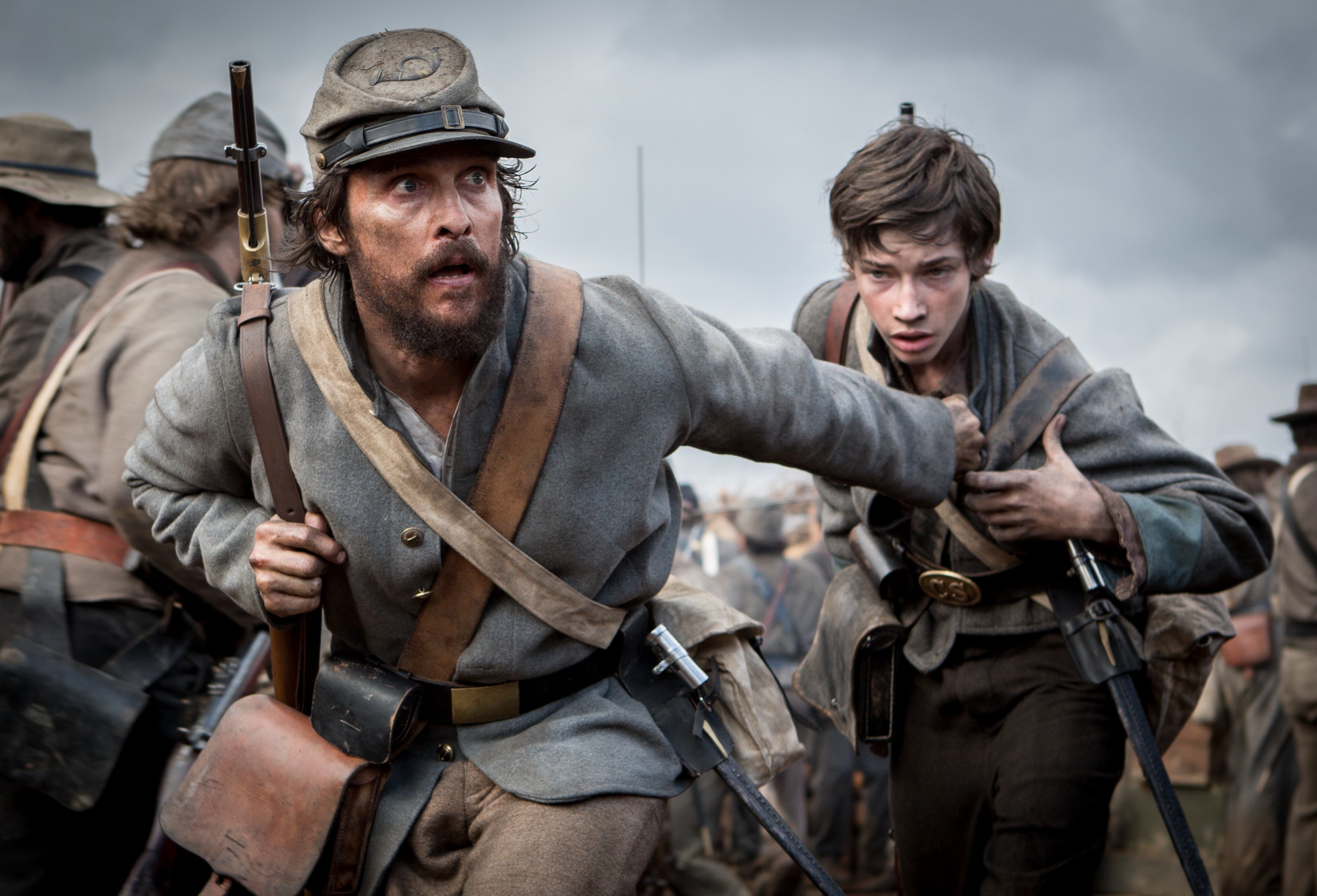Gary Ross’s Free State of Jones doesn’t lack in ambition and epic scope. Yet despite a generous 2 hours and 20 minutes running time, the film’s sprawling, centuries-spanning narrative feels patchy, unevenly plotted and lumbered with a curiously meandering ending. Director and screenwriter Gary Ross resorts to clichéd ellipses and editing tricks to fill in the blanks (bits of on-screen text, the passing of time and key events marked by archive photographs).
Thomas Dixon, the author and racist who penned The Clansman, on which The Birth of a Nation (1915) is based, described DW Griffith’s adaptation as like ‘history written with lightning.’ Ross’s film is history written honourably with anger and tears. For the director deems men like Newton Knight as symbols of progress and unity, depicting the farmer turned revolutionary bandit as a good egg who helped vulnerable slaves out of the kindness of his heart and sound moral judgement.
Matthew McConaughey headlines as the Confederate soldier and proud Mississippian. Aggrieved by the war, especially the ‘Twenty Negro Law’, which allowed plantation masters to return home if they owned 20 slaves, smelling injustice among the gangrene and rotting corpses, Knight deserts after the Battle of Corinth – easily the film’s standout sequence alongside a later gunfight in a churchyard – and makes his long way home. Escaping into the bayous, Newton forms a band of socially inclusive revolutionaries – fellow deserters and slaves on the run – who declare their homeland, Jones County, as free from the Yankees and Johnny Reb.

Ross undoubtedly sees Robin Hood and Knight as spiritual brothers. But it’s also clear he sought to align the Newton Knight’s story with today’s Occupy Movement and the rise of leftist populist movements at home and abroad for added resonance. Knight is a Utopian and a visionary, his America is all about freedom with social responsibility.
Ross clumsily integrates scenes set in 1960s Mississippi, where a descendant of Newton’s union with house slave Rachel (Gugu Mbatha-Raw), Davis Knight, is fighting against a charge of miscegenation because he married a white woman and he’s 1/8th black (this was enough for the law to come down hard on the couple). Intended as a dramatic counterpoint and sorrowful betrayal of Knight’s hard-fought deeds, nothing’s changed in the Deep South, the sequences jar rather than emerge as an effective narrative structure.
A handsome picture beautifully photographed by Benoît Delhomme, and McConaughey’s southern fried Robin Hood proves another fine performance, but it might have worked better as a mini-series made for television, where a director can take his or her time in fleshing out what is a fascinating tale. Free State of Jones’ third act, weaving personal tragedy with the volatile and sickening political situations caused by the Reconstruction, new race laws and the rise of the KKK, loses so much dramatic focus, it’s almost as if Ross doesn’t know how to close his film.
Free State of Jones is out in cinemas now. For more American history, pick up the new issue of All About History or subscribe now and save 25% off the cover price.
